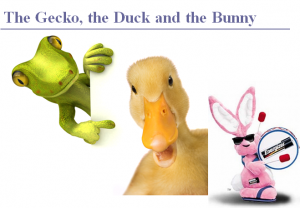 Storytelling and personalization is the biggest missing piece in content marketing as I see it. People are good at writing about what they know. They aren’t as good about expressing who they are and why they do what they do.
Storytelling and personalization is the biggest missing piece in content marketing as I see it. People are good at writing about what they know. They aren’t as good about expressing who they are and why they do what they do.
If you’re not writing real stories, your content – on your blog, in your newsletter, on your web pages – runs the risk of being boring. You may be excited about what you do as a professional, but your clients will get bored or overwhelmed if you just throw information at them.
In the Content Marketing Webinar last week, I talked about communicating your back-story… the background about the why and who of your business. It’s especially important in service businesses where people hire you to help them solve a problem.
I once asked a guy who founded an online training service what his back-story was, and he didn’t know what I meant.
He thought I would see the obvious, that there was a gap in what was available online and an opportunity to make money. Okay, that’s exciting… to you and your spouse for sure.
But there’s always more to the story than that: Why did he personally spend considerable time, energy and money creating what he did?
There has to be drive, passion and love. He had to care. That’s the story people need to know. Read More→











